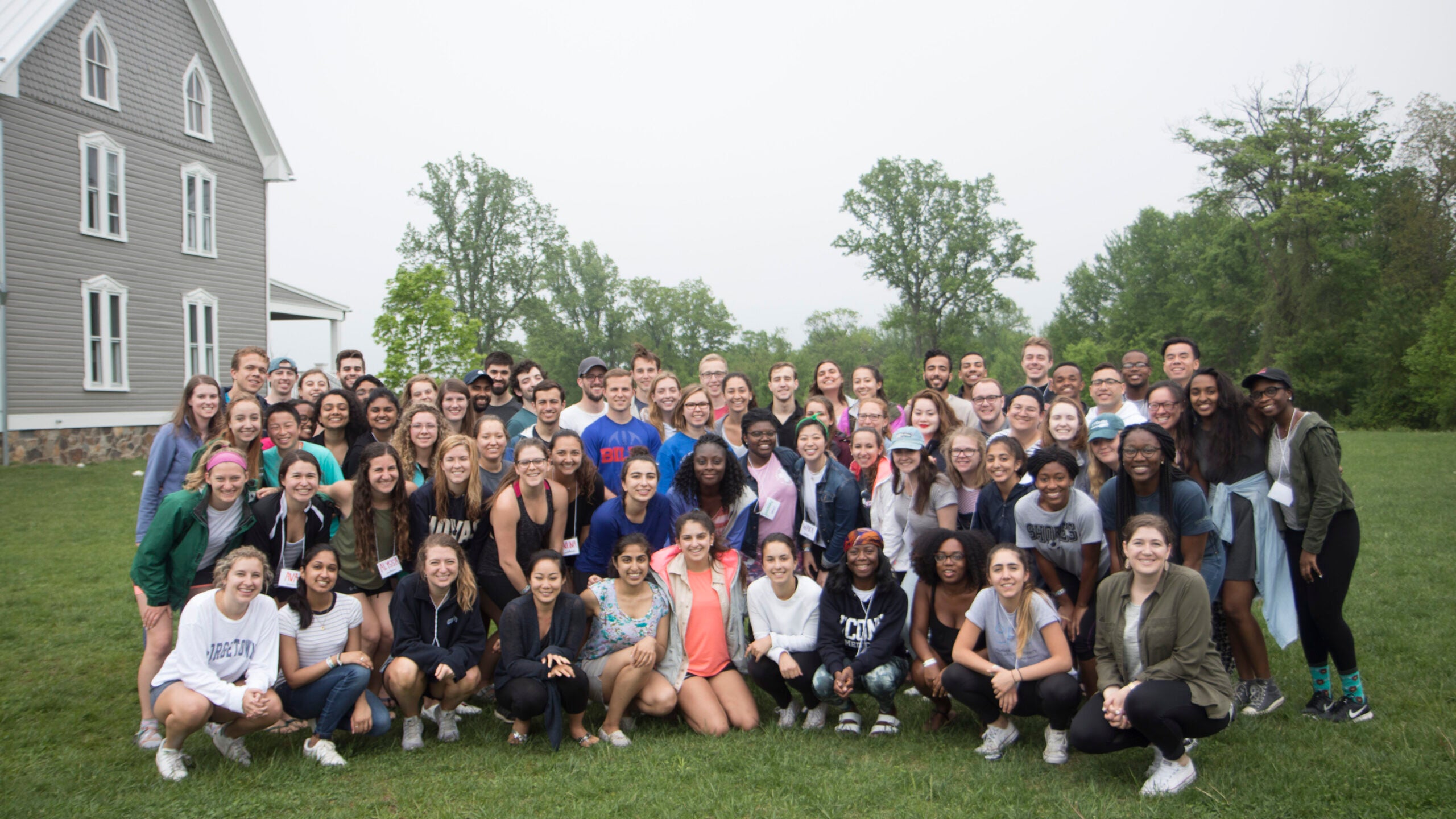Women in Faith: Madeline Vitek Memenza
Campus connector Madeline Vitek Memenza shares how her career at Georgetown is steeped in Ignatian tradition
By: Jennon Bell Hoffmann
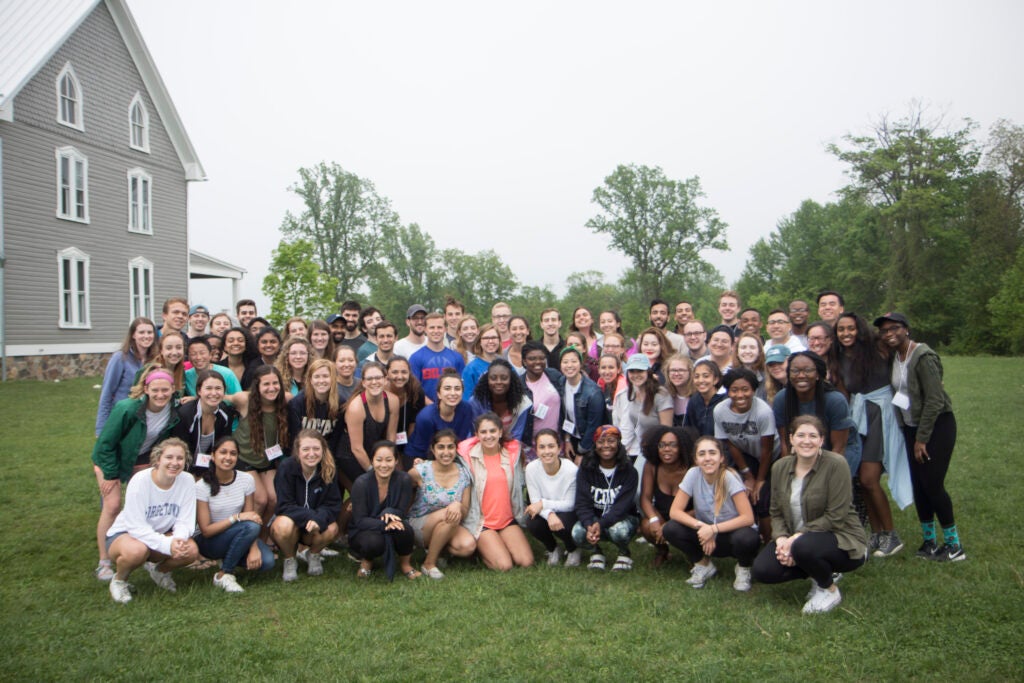
Madeline (far right, front row) at the Calcagnini Contemplative Center, Senior Retreat, 2018.
If you are a new student, a graduating senior, a new employee, or simply walk the campus long enough, chances are you have encountered Madeline Vitek Memenza. Though she has several official titles at Georgetown—Director for Mission Engagement, Retreat Design Specialist, Special Advisor to the Vice President for Student Affairs—Madeline might best be known as a connector. In her roles, Madeline uses her decades-plus experience in student affairs, the Ignatian tradition, and retreat design to make the Georgetown mission and Ignatian tradition accessible to all students, staff, and faculty. She recently chatted with us about how she shares the Georgetown mission as part of our Women in Faith series.
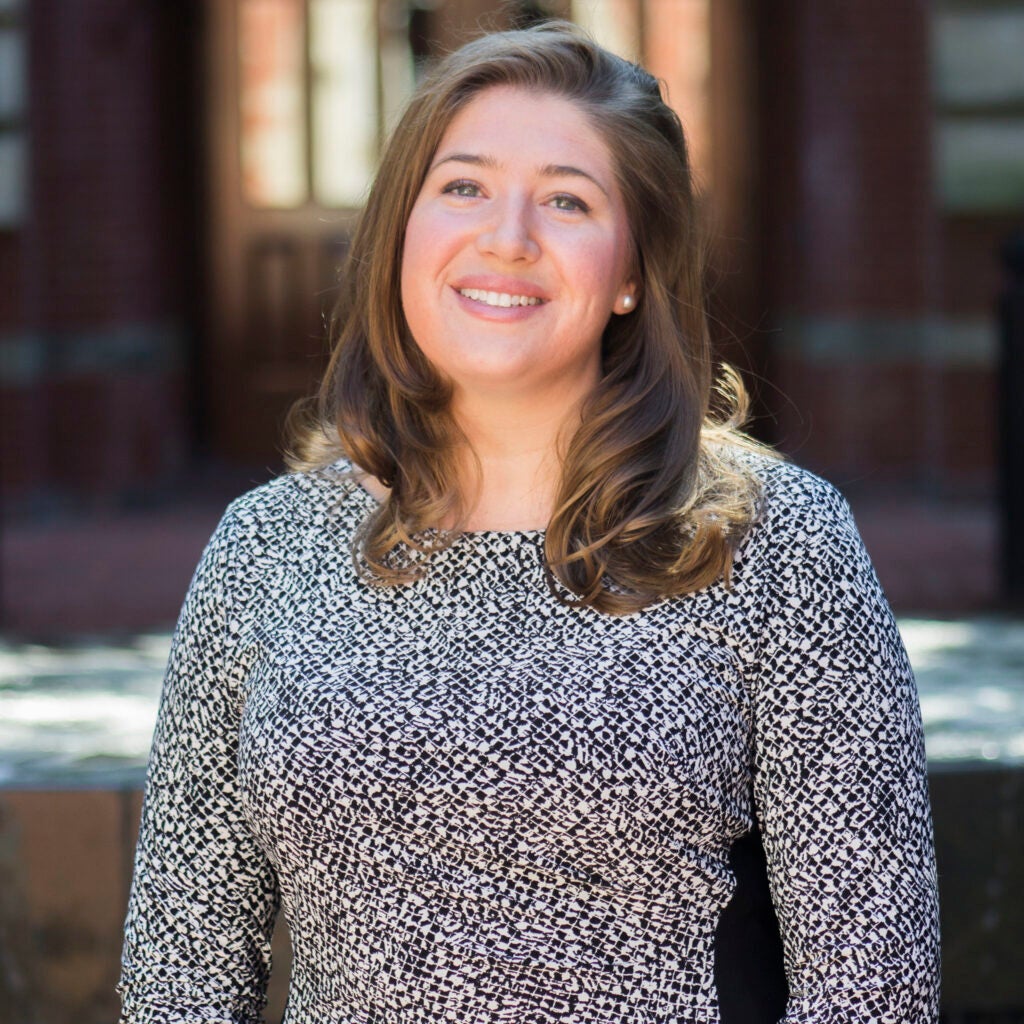
Campus Ministry: You have a busy life on campus. Tell us about your roles at Georgetown.
Madeline Vitek Memenza: If my career has had a theme, I would call it “transition and integration.” While the different roles seem very disparate, I think they all revolve around integration. For example, in my work as the Director for Mission Engagement on the main campus and for university services offices, we’re really trying to think about how the mission is integrated into the everyday employee experience at Georgetown, across the entire employee experience. That means that when you come to Georgetown, how are you invited into our shared mission? Through new employee orientation, for example, through having access to a staff retreat while you’re at Georgetown, through having access to chaplains to accompany you or provide spiritual direction, or just good company and conversation.
Last year, I spoke at almost every new employee orientation, which means almost every new employee who was onboarded at Georgetown heard me, or someone from my office, talk about the mission. It’s a critical part of the Georgetown experience for our students, and ideally for staff as well.
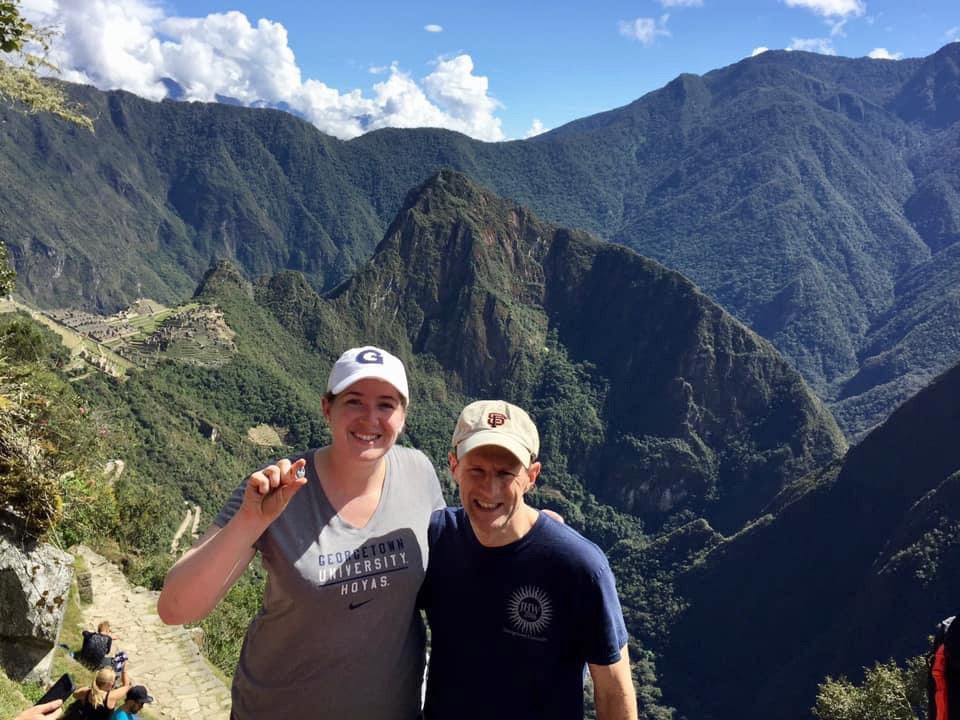
Madeline with Fr Matt Carnes, SJ on a faculty and staff Magis Immersion experience in Peru.
CM: How do you integrate the mission and values of Georgetown after orientation? Where do employees go from there?
MVM: Yes, of course, it’s not always the first priority for someone who is figuring out a new job. But my hope is that once space frees up in their brain or their calendar, they have access to the language that’s used here, the concepts that are used here. We do try to use these as an institutional compass in many ways, in the way that we hope they guide our work.
I think it also starts with where each individual is. We get folks who have worked at Catholic schools and went to Jesuit schools, and they’re just excited and want to know if they can find a version of what they experienced before and plug in here. We also have people who come to Georgetown who aren’t even aware that Georgetown is a Catholic and Jesuit University until they start [here] and many of our folks are from other religious or non-religious backgrounds. And it’s a nice surprise for them to know we have such a religiously diverse team of chaplains and such an array of spiritual offerings. We make sure people know that [they] are welcome in all of our spaces, always.
CM: How do your own background and beliefs factor into the Georgetown mission?
MVM: I started at Georgetown in 2010 as a Community Director in our Office of Residential Education. At that time, I was very fortunate [to have] two exceptional Jesuits-in-Residence, Fr. Francis Schemel and Fr. David Collins, in Village C West, and they were such a huge source of consolation for me in what can be a challenging role on occasion. And I just kept thinking of ways to bring Ignatian spirituality more into our work, and think about our Ignatian tradition and values. I was always trying to find ways to plug in or engage with the mission, no matter what I was doing. I think I was unintentionally setting a course for Mission and Ministry without even really thinking about it. It’s really a recognition that our Ignatian tradition is critical to what Student Affairs does and thinking about ways that we can just keep it at the forefront, deepen it, and engage with it more.
The Ignatian tradition has animated my life so much, providing many personal opportunities in addition to professional opportunities. And, while I know everyone won’t have my exact experience, I want as many folks to have as much access as possible to a lot of the gifts that I feel like I have been so generously given in terms of engaging with the tradition.
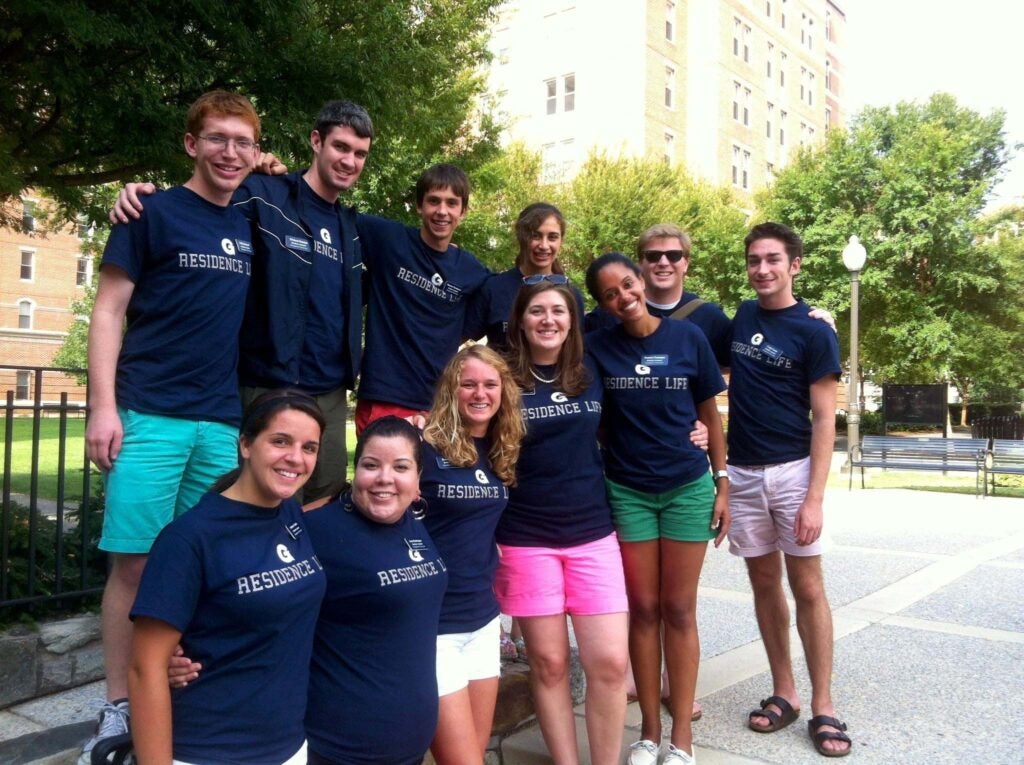
Madeline with Residence Life colleagues.
CM: After 14 years at Georgetown, where you’ve had your hands in a lot of things, what still really excites you? What do you love about your job?
MVM: I was just talking about this with some colleagues and realize that it sounds really trite, but it’s true—the best part of Georgetown is the people. I can sincerely say I have found my people here. Georgetown is where I emerged into young professional adulthood and through to less-young adulthood. And I know systems are not always great—there are things that can make Georgetown sometimes a challenging context to work in as an employee. But the people here are just so incredible and a joy to be around and see; they make my days.
CM: Through the retreats and Student Affairs, you are working with students to help them find their place on campus and ultimately, in the world. What are some issues or challenges you see students struggling with that you work to alleviate?
CM: What do you tell students who are struggling to find balance or footing? What has helped you navigate vulnerable periods?
MVM: Two of the things that helped me navigate [vulnerable times] is a reflective tradition, which gives me the interior tools to put things into perspective or persevere, to keep going. The other is community, where I can say to myself, “This thing is really hard, and I don’t like doing it, but I’m doing it with this person I really care about, who cares about me, and we care about each other,” and that helps immensely. I think community is the only way that we’re really able to navigate some of these things and again, I’m grateful to have somehow found my way into this community of people in Campus Ministry, Student Affairs, and Georgetown. There are so many smart, interesting, kind people here and I just want to put them all in a huge room together and absorb the goodwill.
CM: If you could share a message with every Georgetown student, what would you tell them? What parting thought would you want to share?
MVM: If you do nothing else with your time at Georgetown, nothing else at all, email or reach out to one of our chaplains and build a relationship with them, whether that’s in your tradition or outside of it. You should not leave this place without talking to Imam Yahya Hendi or Rabbi Ilana Zietman or Father Greg Schenden, S.J., or Reverend Ebony Grisom or Fr. David Pratt or Brahmacharini Shweta, if you do it would be such a missed opportunity.
Madeline Vitek Memenza is the Director for Mission Engagement, Main Campus, Retreat Design Specialist, and Special Advisor to the Vice President for Student Affairs.
Jennon Bell Hoffmann is a freelance writer and editor living in Chicago.
Photos courtesy of Madeline Vitek Memenza
